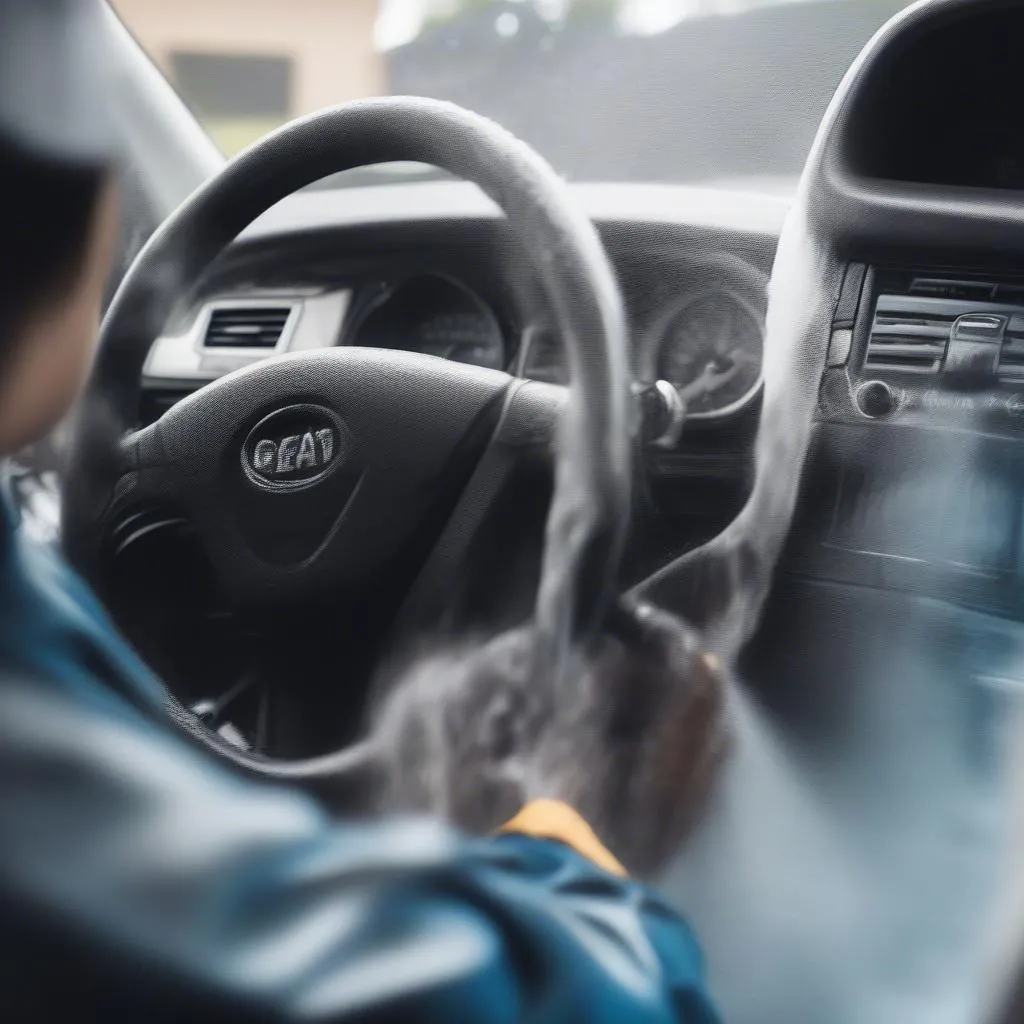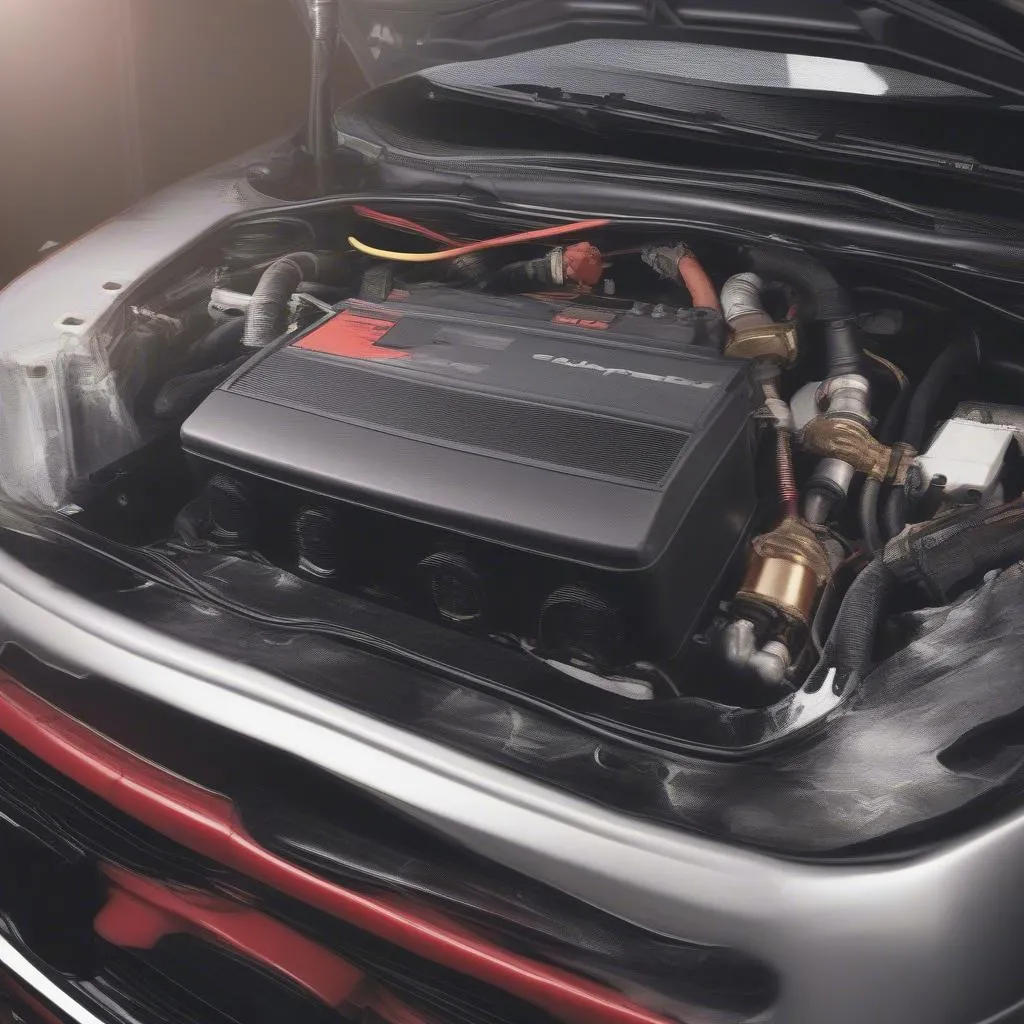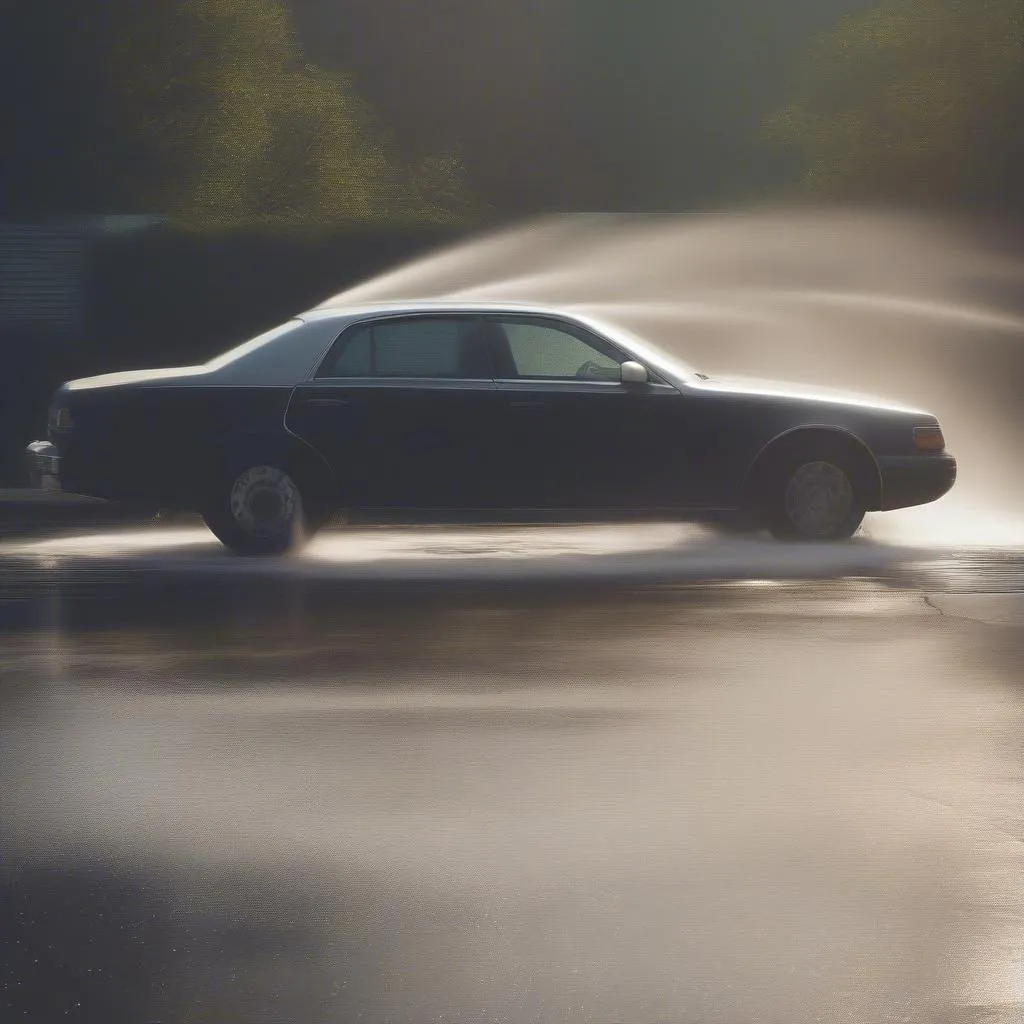Have you ever wondered what happens to your car’s electrical system when it’s going through a car wash? We’ve all been there, pulling up to the car wash, hoping for a sparkling clean ride. But what’s happening under the hood? Is it safe for your car’s electrical system? In this article, we’ll dive into the world of car washes and their impact on your car’s electrical components.
Understanding the Car Wash Zone and Its Impact
The “Car Wash Zone” is a crucial part of the car washing process. It’s where the high-pressure water jets, cleaning agents, and brushes come into play. This zone is designed to get your car squeaky clean, but the intense water pressure and moving parts can be a concern for your car’s electrical system.
Potential Risks to Your Car’s Electrical System
The primary concern for car washes is the possibility of water ingress into your car’s electrical components. Water can cause short circuits, damage wires, and even lead to catastrophic failure of electronic components.
Here’s what you need to know:
- Water Damage: Water can seep into areas like your engine compartment, under the dashboard, or even through your headlights. This can happen if the seals around these components are compromised.
- Short Circuits: If water reaches electrical connectors or wiring, it can create a short circuit, which can cause overheating, damage to components, and even start a fire.
- Corrosion: Constant exposure to moisture can cause corrosion on your electrical components, hindering their ability to function properly.
Example Scenario:
Imagine you’re driving a 2022 Volkswagen Golf through a touchless car wash. Suddenly, you hear a loud pop and your headlights flicker. This could be a sign of water damage to the wiring harness connecting your headlights to the electrical system.
Car Wash Zone Safety: What to Do
Thankfully, there are ways to minimize the risk of electrical problems from car washes:
- Choose a Reputable Car Wash: Look for a car wash that uses quality equipment and has a reputation for taking care of vehicles.
- Inspect Your Car After the Wash: After the car wash, take a moment to inspect your car for any signs of water ingress. Look for water pooling in areas like the engine compartment, under the dashboard, and around your lights.
- Consider a Hand Wash: If you’re concerned about water damage, opt for a hand wash where the pressure and cleaning methods are more controlled.
Expert Insight: “Car washes are an essential part of car maintenance, but it’s vital to be aware of the potential risks to your electrical system. Choosing a reputable car wash and inspecting your car after the wash can make all the difference,” says Dr. Robert Smith, a renowned automotive engineer and author of “The Complete Guide to Car Electrical Systems.”
Frequent Car Wash Zone Questions
Q: Is it safe to use my car’s electronic features, like the touchscreen display or navigation system, while in the car wash?
A: It’s best to avoid using these features while going through a car wash. The increased use of electronics can increase the risk of water damage if the seals around the components are compromised.
Q: How often should I get my car washed?
A: The frequency of washing depends on your driving habits, the environment you live in, and your personal preference. However, a general guideline is to wash your car at least once every two weeks to prevent dirt and grime from accumulating and causing damage to your paint and electrical components.
Q: Is it safe to wash my car in the rain?
A: While rain can provide a natural rinse, it’s not ideal for a thorough wash. Rainwater can contain dirt and debris, which can actually damage your car’s paint.
Keeping Your Car’s Electrical System Clean
Here are some additional tips for maintaining your car’s electrical system:
- Regularly Check for Damaged Seals: Make sure the seals around your headlights, taillights, and other electrical components are in good condition. Replace them as needed.
- Use Waterproof Lubricant: Applying waterproof lubricant to your electrical connectors can help prevent corrosion.
Conclusion
The car wash zone can be a source of potential problems for your car’s electrical system. By understanding the risks, taking precautions, and following proper maintenance procedures, you can protect your car and ensure its longevity. Remember, a little extra care goes a long way in keeping your vehicle running smoothly and protecting your investment.
Want to learn more about car maintenance and electrical system care? Check out these related articles on our website:
- [
 Car Wash Safety Tips: How to Protect Your Vehicle]
Car Wash Safety Tips: How to Protect Your Vehicle] - [
 Car Electrical System Maintenance: A Comprehensive Guide]
Car Electrical System Maintenance: A Comprehensive Guide] - [
 Car Wash Zone Dos and Don'ts: A Guide to Safe Washing]
Car Wash Zone Dos and Don'ts: A Guide to Safe Washing]
Need help with your car’s electrical system? Contact us at Whatsapp: +84767531508. Our team of experts is available 24/7 to assist you.